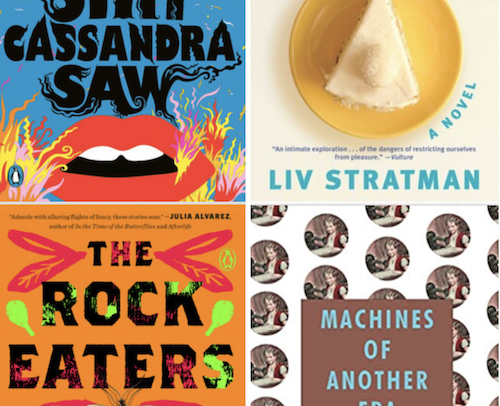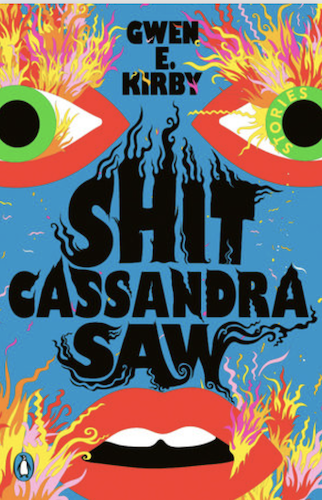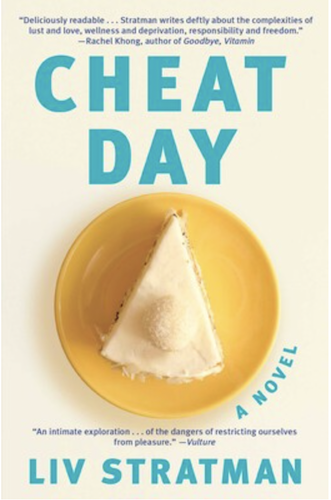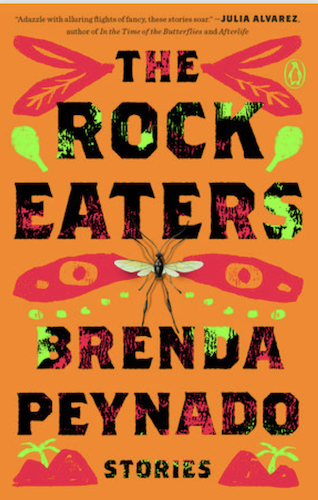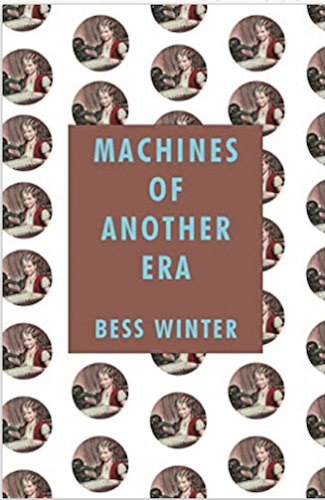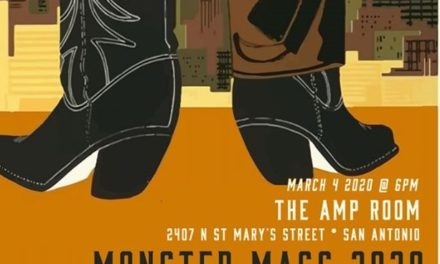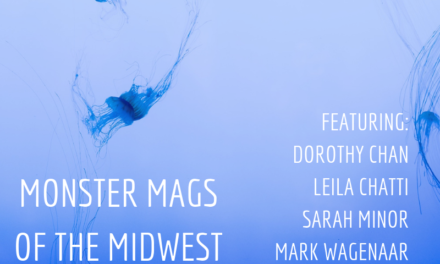Assistant Editor Haley Crigger: The Robert and Adele Schiff Fiction Festival took place last week and took our breath away. Events included two fiction readings and a panel with Gwen Kirby, Liv Stratman, Bess Winter, and Brenda Peynado. After the events, I reflected on the most “relevant” questions left in the wake of such powerful publications.
When introducing Gwen Kirby, author of Shit Cassandra Saw (Penguin Random House, 2022), Chris Bachelder quoted Claire Messud, who famously balked when an interviewer asked if she would like to be friends with one of her protagonists.
“For heaven’s sake,” Messud answered. “What kind of question is that? Would you want to be friends with Humbert Humbert? Would you want to be friends with Mickey Sabbath? Saleem Sinai? Hamlet? Krapp? Oedipus? Oscar Wao? Antigone? Raskolnikov?” The list continued—in the interview and in Chris’s introduction—building a compelling diptych as Kirby took the podium and introduced us to her characters in “A Few Normal Things That Happen a Lot”: women with fangs; radioactive cockroach women; women who wear false antennae to present as radioactive cockroaches; a werewolf-woman howling at the moon.
Messud took the time to enlighten her interviewer: “The relevant question isn’t ‘is this a potential friend for me?’ but ‘is this character alive?’” Kirby’s characters are certainly alive, and as they navigate familiar spaces—public transportation, dark alleyways, grocery shopping, heterosexual relationships—they conjured more questions that women have been asking for millennia: What is the cost of anger, of softness, of safety? What does it mean to be whole? How many versions of femininity are available right now? How many more are possible?
It’s always interesting to me, the way pairing writers together inevitably highlights what they share. Liv Stratman is no stranger to boring questions about “unlikable” protagonists, a bit of feedback especially reserved for women who write about women. Before reading from her latest project, she invited the audience to check out the Goodreads reviews for Cheat Day (Simon & Schuster, 2022), which of course I did. Incredibly, all of the one-star views are aimed directly at her protagonist Kit, a “hot mess” who cheats on her husband and “takes no responsibility for her actions.” Similar content flooded Stratman’s inbox at the time, which eventually prompted her to remove her email address from her website.
I began my correspondence with these authors over email, asking where and how they find a “seriousness of purpose” after graduate school. In person, Stratman admitted the question bothered her, and I immediately liked her for it. “For heaven’s sake,” I imagined her saying, a la Messud, before sitting down to respond in full: “I don’t concern myself with the fact that what I do is valued less than what businessmen and lawyers and doctors and politicians and real estate brokers and, oh, say, industrial meat manufacturers do, because I don’t want to do any of that shit.” Readers, I fell in love.
Stratman’s latest novel-in-progress features all the humor and psychological precision one expects from Stratman’s writing, set against the looming presence of a robotic quadruped. While Henry insists the robot is a tool with a very serious cartographic mission, Lorraine insists on treating it like a dog, building it a little house to sleep in and gazing at it with the pride of a loving owner. By the end of the evening, Stratman’s next novel moved to the top of our list of most-anticipated releases.
For Brenda Peynado and Bess Winter, the practice always returns to the joy of writing, of recalling what drove them to write in the first place, and giving that thing the reins to their work. “My characters started flying, believing in magic, launching themselves into the air,” Peynado wrote. “Suddenly I didn’t need rituals, space, or the right conditions to sustain my writing . . . my writing sustained me instead.” In The Rock Eaters (Penguin Random House, 2021) the life-sustaining relationship between Peynado and her writing is evident.
At the podium, she read from “Thoughts and Prayers,” in which young Paola reels from a recent school shooting that killed her best friend’s big sister. The scenario is unforgivably familiar in the United States, and Peynado forces us to read it with fresh eyes, with Paola and Rima’s eyes, as the neighborhood collects machine guns and negotiates with surly rooftop angels. What are the relevant questions for a wealthy nation whose children practice active shooter drills and tiptoe around the angels’ fresh guano? Paola’s parents love her, asking her to trust them and the other adults. “And what could be trusted,” Paola wonders, “if not love?”
While Winter had originally been slated to read with Kirby, travel delays led to some rescheduling, and the last-minute pairing of Peynado and Winter could not have been more magical. Their readings delivered attentive, wholly original meditations on division and violence, each with the author’s distinct style. Where Peynado’s prose works like a knife—sharp observations swifter and deadlier than sentiment—Winter’s was raucous and laugh-out-loud, reminiscent of Flannery O’Connor’s “large, startling figures,”
Her collection, Machines of Another Era (Goldwake Press, 2021) explores mailbag babies, stolen eggs, primates, and, in the case of “A General Confusion Overtook the Whole Vicinity,” the American Civil War. Among many memorable images, the one that is now forever stamped on my brain is that of Mrs. Jeffries, the nineteenth-century confectioner, sprinting to break up a brawl between two young boys, a tin of Sugar Maple Hasheesh Candy rattling in her pocket like a war drum. Less concerned with which “side” each boy represents, her main objective in saving one or both of their lives—she can’t decide—is to help her daughter, who apparently loves one of them—she can’t tell which.
Mrs. Jeffries is a hilarious character, a star among Winter’s many stars, and they speak to Winter’s personal devotion to world-building; as she said in our post last week, “I learned I couldn’t count on the prospect of publishing to spur my creativity. I’d started writing because I was a lonely child who tried to build her own world. That’s what I had to go back to. I had to write to build my own world.” Her worlds resemble ours; they are familiar enough to stir our hearts, but the mechanics defy and unsettle us. At the end of a story, when the dream is over, the reader is left with a message received in another language, one that is not easy to relay except by holding up her book, pointing desperately at the page, and saying, “Please, read this.”
What are the relevant questions for contemporary writers? It’s tradition, while wrapping up a postevent recap blog, to reach for the questions that might summarize the themes and concerns of Kirby, Stratman, Peynado, and Winter. As a woman and a writer, I’m tempted to go diving for gold coins, quotes and insights I can hold up to the sunlight and say, “How does this speak to our shared experiences?” (“For heaven’s sake!” cries my internal chorus of editors. “What kind of question is that?”)
I’m writing this from the hospital as someone I love is treated for congestive heart failure, one of the many side effects of her most recent breast cancer treatment. In terms of shared experiences, breast cancer doesn’t happen to all women, nor exclusively to women, but it is definitely one of A Few Normal Things That Happen A Lot. As we work on expanding our collective definition of womanhood, I’m feeling less inclined to dive for gold coins, and more inclined to start over with the phenomena of experience, sensation, perspective, and imagination. I’m inclined to return to the work itself, to point desperately at the pages written by Gwen Kirby, Liv Stratman, Brenda Peynado, and Bess Winter and say, “Please, read this.”

